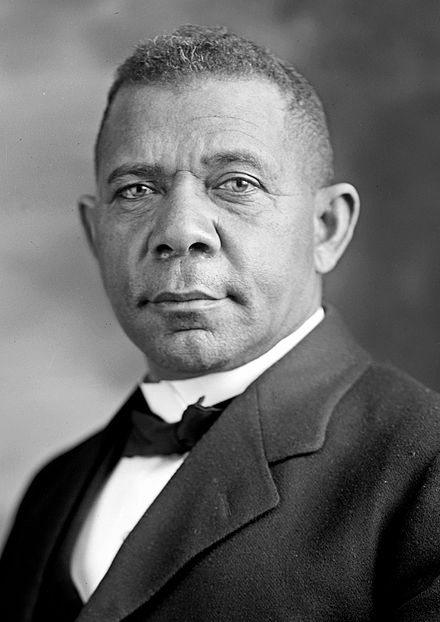
Introduction to Lesson 6
Booker T. Washington took the time to pen the following words: "The plantation songs are known as "Spirituals"Religious music of African Americans during slavery. are the spontaneous outburst of intense religious fervor. They breathe a child-like faith in a personal Father, and glow with the hope that the children of bondage will ultimately pass out of the wilderness of slavery into the land of freedom. In singing of a deliverance which they believed would surely come, with bodies swaying, with the enthusiasm born of a common experience and of a common hope, they lost sight for the moment of the auction block, of the separation of mother and child, of sister and brother. There is in the plantation songs a pathos and a beauty that appeals to a wide range of tastes, and their harmony makes the abiding impression upon persons of the highest culture. The music of these songs goes to the heart because it comes from the heart" (Darden 2004, 70).
In this lesson, the heart of the spiritual, with its message conveyed through lyrics taken from stories in the Old and New Testaments of the Christian Bible, will be broken down into three distinct sections: biblical narratives in general, clandestine meetings, and personal religious testimony and experiences (Thurman 1967, 3).
Within that continuum, there is still a great deal of room to describe the immense creativity that went into the spiritual. One observer places the thousands of extant spirituals into the following categories to illustrate this very point:
"In their adept mixing of naivete, dignity, and sophistication-qualities of the tragic and the epic-the semantics of the spirituals run the gamut from the magnificently simple, to the ambiguous, to the utterly confounding," writes Erskine Peters (Peters 1996, 683).
In the years following the Civil War, as more of the former slaves became literate, some of the older slaves distrusted written spirituals and hymns, claiming the printed page interfered with the direct intervention of the Holy Spirit. Jeannette Robinson Murphy's interview with an elderly woman who had once been a slave in Kentucky, reveals the depth to which those slaves cherished the "mystery" of the services:

Us ole heads use ter make 'em on de spurn of de moment, after we wrassle wid de Spirit and come thoo. But the tunes was brung from Africa by our grand-daddies. Dey was jis' miliar song . . . dey calls 'em spirituals, cause de Holy Spirit done revealed 'em to 'em. Some say Moss Jesus taught 'em, and I's seed 'em start in meetin'. We'd all be at the "prayer house" de Lord's Day, and de white preacher he'd splain de word and read whar Ezekiel done say- Dry bones gwine ter lib again. And honey, de Lord would come a-shining thoo dem pages and revive dis ole nigger's heart, and I'd jump up dar and den and holler and shout and sing and pat, and dey would all cotch de words and I'd sing it to some ole shout song I'd heard 'em sing from Africa and dey'd all take it up and keep at it, and keep a- addin to it and den it would be a spiritual. Dese spirituals am de best moanin' music in de world, case dey is de whole Bible sung out and out.

Howard Thurman
For [the slaves] the 'troubled waters' meant the ups and downs, the vicissitudes of life. Within the context of the 'troubled' waters of life there are healing waters, because God is in the midst of the turmoil. Do not shrink from moving confidently out into the choppy seas. Wade in the water, because God is troubling the water.
Booker T. Washington
The plantation songs known as "Spirituals" are the spontaneous outburst of intense religious fervor. They breathe a child-like faith in a personal Father, and glow with the hope that the children of bondage will ultimately pass out of the wilderness of slavery into the land of freedom.






